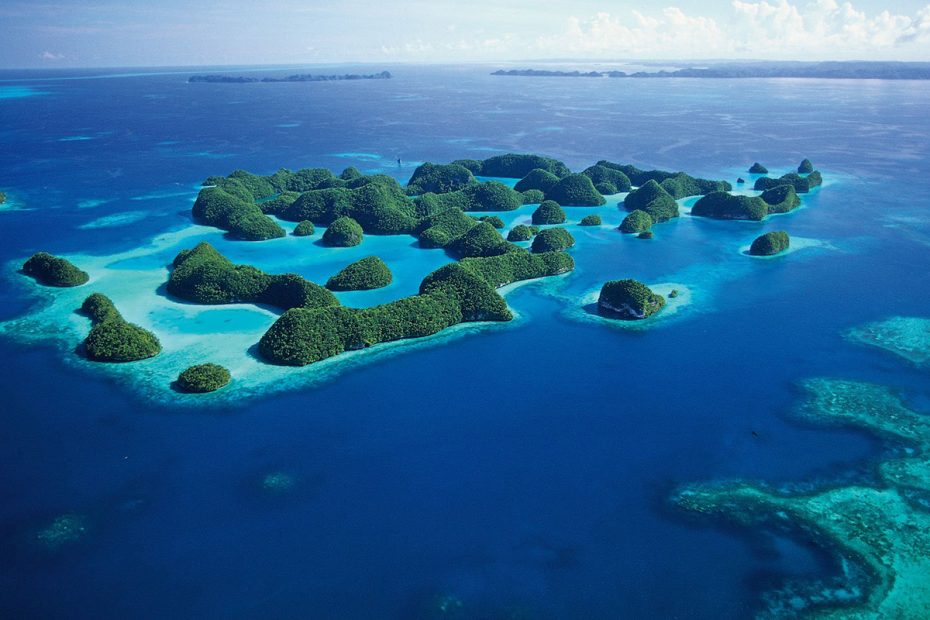The tiny Polynesian nation of Tuvalu may not be on most travelers’ radar, but this remote island country has plenty of hidden gems waiting to be discovered. With crystal clear waters, secluded beaches, fascinating culture, and the friendliest locals you’ll ever meet, Tuvalu is a perfect destination for those looking to get off the beaten path.
Table of Contents
A Look at Tuvalu
Tuvalu is located in the South Pacific Ocean, halfway between Hawaii and Australia. It comprises nine coral atolls with a total land area of just 10 square miles. Formerly known as the Ellice Islands, Tuvalu was a British territory before gaining independence in 1978. The Tuvaluan people are Polynesian in ethnicity and culture. Today, Tuvalu is one of the world’s smallest and most isolated countries.
Despite its remoteness, the scenery in Tuvalu is stunning. Picture palm-fringed beaches, sparkling lagoons in shades of aquamarine, and colorful coral reefs teeming with marine life. The slow pace of life and lack of mass tourism make it feel like you’ve stepped back in time. The Tuvaluan way of life still revolves around fishing, farming, and strong community ties.
Pristine Beaches and Lagoons
Tuvalu’s most famous beaches are found on the main island of Funafuti. Amatuku Beach boasts ivory sand and is perfectly hemmed by swaying palms and lush greenery. The swimming area is defined by buoys, keeping you protected from boats and ferries entering the lagoon. Down the coastline lies Ananau Beach, another postcard-worthy stretch of sand. Wade out into the shallow, crystal clear waters for a quick dip or snorkel.
Wildlife Watching at Funafuti Conservation Area
For nature lovers, the Funafuti Conservation Area is a must-visit. Located on the islet of Funafala, this reserve protects Tuvalu’s rich biodiversity and natural habitats. As you follow the walking trails, keep an eye out for native birds like the blue-naped parrot finch and the colorful Tuvaluan honeyeater. The area also attracts nesting sea turtles during breeding season. At night, stake out a spot on the beach to watch manta rays glide through the bioluminescent waters offshore.
Experiencing Traditional Island Culture
While in Tuvalu, immerse yourself in the vibrant local culture. On the outer islands, most villagers still follow a traditional way of life. You’re likely to see elders wearing lavalavas (wrap skirts) weaved from pandanus leaves. Community events like feast days, church services, and dance practices form the crux of the social calendar. Visitors looking for an authentic Polynesian experience will love mingling with the friendly locals. Some of the best cultural opportunities can be found on the islands of Nanumea, Nanumaga, and Niutao.
Outdoor Activities from Land to Sea
Tuvalu serves up plenty of adventures to thrill outdoorsy travelers. Snorkeling and scuba diving allow you to explore pristine coral reefs and sea walls patrolled by sharks, turtles, and rays. Try deep sea fishing to reel in yellowfin tuna, barracuda, and other sport fish. On land, hiking trails weave across the islands. Funafuti’s Cross Island Track offers panoramic views of the surrounding atolls. Kayaking, sailing, and paddleboarding are other popular ways to pass the days.
Travel Tips for Tuvalu
A trip to Tuvalu does take some extra planning due to its remoteness. There are only 2-3 flights per week from Fiji on Fiji Airways. Once there, getting around requires a mix of boats, bikes, and taxis. English is widely spoken but it helps to learn a few handy Tuvaluan phrases. Opt to stay in locally-owned guesthouses for a cultural experience. The local cuisine relies on fresh seafood and starchy staples like taro, rice, and breadfruit. Don’t forget to pack reef-safe sunscreen, flip flops, insect repellent, and a good camera!
Tuvalu may be off the beaten track, but the rewards for venturing there are plentiful. Its serene beauty and unspoiled island vibes allow you to disconnect from the rest of the world and truly relax. With a little effort, you too can uncover Tuvalu’s hidden gems for a one-of-a-kind South Pacific escape.
FAQs about Visiting Tuvalu
Is Tuvalu safe for tourists?
Yes, Tuvalu is generally very safe for tourists. Violent crime is extremely rare. The locals are known for being super friendly and welcoming. However, as with any new destination, it’s wise to take basic safety precautions.
What is the best time of year to visit Tuvalu?
The dry season from April to October sees sunny, mild weather perfect for water sports and cultural activities. November to March brings hot, humid temperatures with increased chance of rainfall.
What currency is used in Tuvalu?
Tuvalu uses the Australian dollar (AUD). ATMs are limited, so it’s best to exchange currency before arriving. Credit cards are not widely accepted.
What languages are spoken in Tuvalu?
Tuvaluan and English are the official languages. Most locals also speak conversational English. Learning a few basic Tuvaluan phrases goes a long way.
What are some typical Tuvaluan dishes I should try?
Staples include pulaka (cooked taro), kulolo (coconut and taro paste), and panipopo (coconut buns). Grilled and raw seafood feature prominently. Don’t miss the delicious tropical fruits like bananas, pineapples and coconuts.
